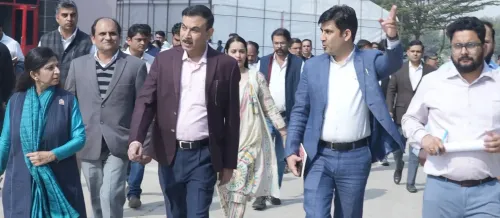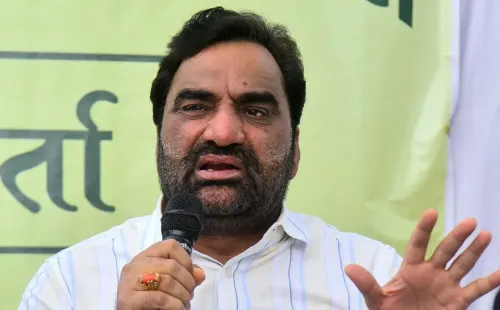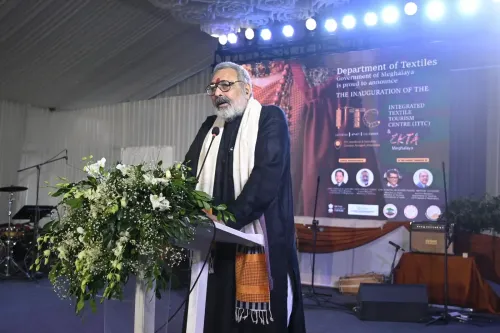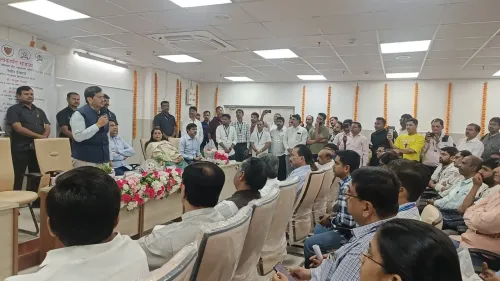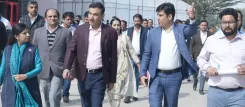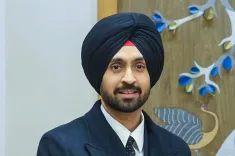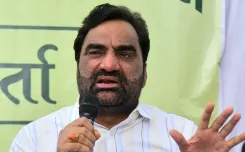Did Kiren Rijiju and Pema Khandu Celebrate the Dalai Lama's 90th Birthday?
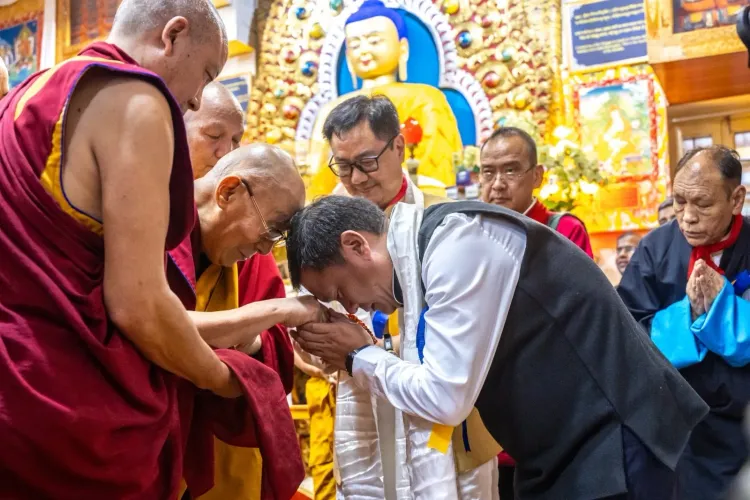
Synopsis
Key Takeaways
- Kiren Rijiju and Pema Khandu attended the Dalai Lama's 90th birthday celebrations.
- The event highlighted themes of peace and compassion.
- The Dalai Lama's succession plan has drawn attention and controversy.
- India reaffirms its position on religious freedom amidst geopolitical tensions.
- The significance of traditional Tibetan rituals like the Long Life Prayer Offering.
New Delhi, July 5 (NationPress) Union Minister Kiren Rijiju and Arunachal Pradesh Chief Minister Pema Khandu were among the many devotees who gathered in Dharamshala on Saturday, one day prior to the 90th birthday of His Holiness the Dalai Lama. This event occurred shortly after the Tibetan spiritual leader emphasized the continuation of his spiritual lineage, a declaration that triggered a strong reaction from China.
The celebrations took place at the Main Buddhist Tibetan Temple and included a 'Long Life Prayer' Offering (Tenshug) for the Dalai Lama. As he approaches the milestone age of 90 on July 6, the Tibetan leader remains a powerful emblem of peace, compassion, and resistance against political oppression.
The Central Tibetan Administration (CTA) shared images of Rijiju’s arrival on its official ‘X’ account, stating: “Kalon (Minister) Norzin Dolma of the Department of Information and International Relations-CTA warmly greeted Kiren Rijiju, the 28th Minister of Parliamentary Affairs and 7th Minister of Minority Affairs of India at Pathankot Railway Station. Minister Rijiju is in Dharamshala to participate in the 'Long Life Prayer Offering' and the 90th birthday celebration of His Holiness the 14th Dalai Lama.”
Chief Minister Pema Khandu also conveyed his thoughts about the moving event on social media. He wrote, “A special day in Dharamshala, where people from all walks of life united for the 'Long Life Offering' (Tenshug) to His Holiness the 14th Dalai Lama. With heartfelt prayers, traditional offerings were made, each symbolizing deep gratitude, love, and hope. The atmosphere was both warm and moving, bringing together young and old in a shared prayer for His Holiness’s well-being. May He be blessed with good health, a long life, and the strength to continue guiding humanity with his wisdom and message of peace.”
This celebration follows the Dalai Lama's public declaration regarding his succession plan, stating that the Gaden Phodrang Trust — rather than any external political body — holds exclusive authority to identify his reincarnation. This announcement has rekindled discussions surrounding the dynamic between Tibet, China, and India, as China reiterated that any reincarnation must happen under its supervision.
In response to the Dalai Lama's recent statements, the Indian government clarified that it does not take an official stance on matters of faith and religion. Ministry of External Affairs (MEA) spokesperson Randhir Jaiswal stated, “We have observed reports concerning His Holiness the Dalai Lama's remarks about the continuation of the Dalai Lama institution. The Government of India does not take any position or speak on issues related to beliefs and religious practices. It has always upheld the freedom of religion for all in India and will continue to do so.”
Born on July 6, 1935, in Taktser, Amdo province of northeastern Tibet, the Dalai Lama was recognized at the age of two as the reincarnation of Thubten Gyatso, the 13th Dalai Lama. Originally called Lhamo Dhondup, he is regarded as the earthly manifestation of Avalokiteshvara, the Bodhisattva of Compassion.
He began his monastic education at six, embarking on a diverse curriculum rooted in the ancient Nalanda tradition, covering subjects such as Buddhist philosophy, logic, grammar, medicine, poetry, and astrology.


